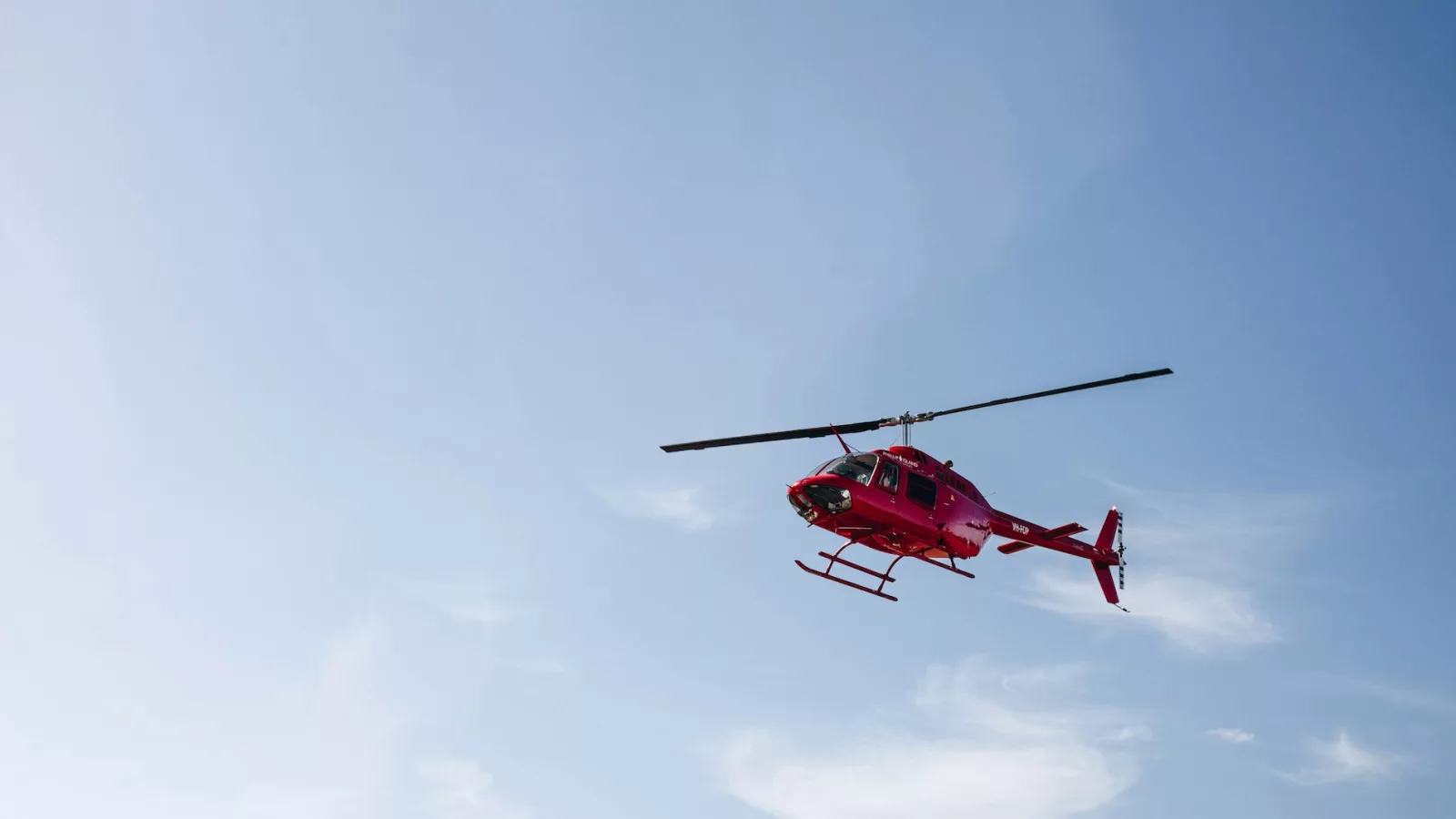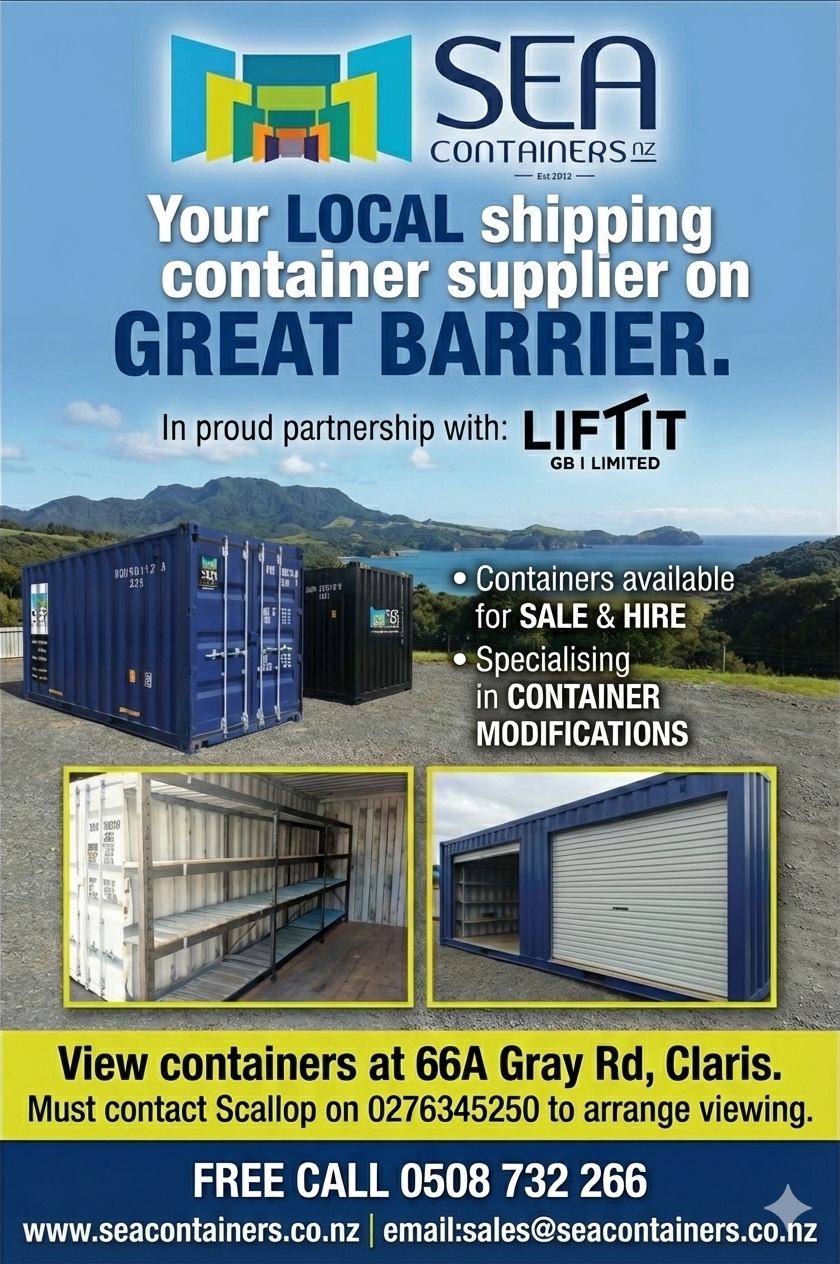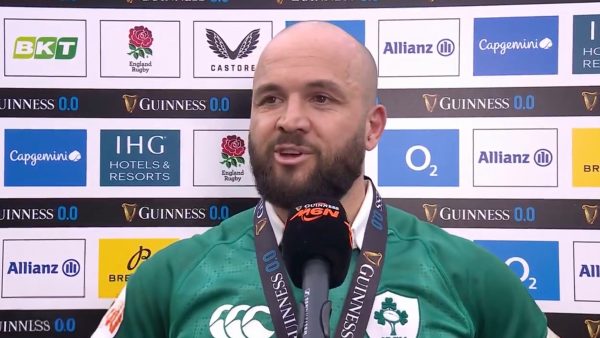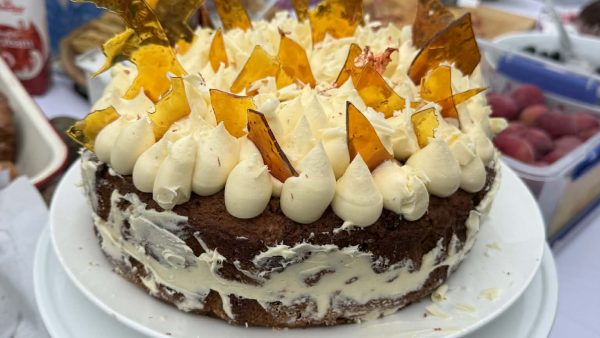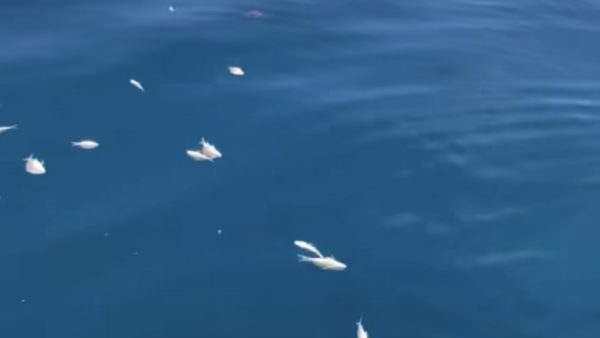Auckland Council has voted to pursue a blanket ban on new private helipads across the Hauraki Gulf Islands—scrapping a more nuanced planning process and throwing out all public submissions made through Plan Modification 16 (PM16), including those from Great Barrier residents.
The decision came as part of multiple ongoing efforts by Waitematā and Gulf councillor Mike Lee to outlaw private helicopters via planning rules. While his push to ban helipads citywide failed under legal and political pressure, his second motion—targeting just the Gulf Islands—was passed.
Council had already initiated PM16, a formal plan change that would have made helipad approvals harder by tightening the rules but still allowing for case-by-case applications through the consent process. Submissions were made under that process, including from Aotea residents and ratepayers, both for and against further restrictions.
Now, with the vote to throw out PM16 in favour of a blanket prohibition, all of those submissions are void.
Council officers had advised that the existing consenting pathway was legally robust and better aligned with national policy. They also warned that a ban would require special sign-off from central government, which has explicitly told councils not to pursue plan changes ahead of RMA reform.
The minister responsible for those reforms, Chris Bishop, has said councils should not spend millions of dollars rewriting district plans during a legislative overhaul aimed at streamlining the planning system and reinforcing property rights.
Despite this, councillors voted to support Lee’s motion to prohibit helipads under the Gulf Islands District Plan. It now goes to the government for approval.
The local board has long opposed helipads on environmental and social grounds, arguing that they disrupt wildlife, damage community cohesion, and allow a privileged few to bypass the community. But many residents have disagreed in feedback to helipad applications as recently as last year.
A submission from a Great Barrier ratepayer opposing PM16 warned that using Waiheke’s helicopter politics to justify gulf island-wide restrictions was “reckless, overreaching, and potentially deadly.” Waiheke has 64 private helipads across 92 square kilometres, just 21 kilometres from central Auckland. In contrast, Great Barrier has only 11 helipads spread over 285 square kilometres, and sits more than 100 kilometres offshore—nearly five times further. The submission argued that equating the two islands showed a fundamental misunderstanding of Aotea’s geography, infrastructure, and emergency access needs.
“Aotea is more than three times the size of Waiheke and its population is heavily dispersed—making roading infrastructure difficult and helicopter access critical.”
“Curtailing helipads is tantamount to curtailing rescue—and the community will hold Auckland Council fully responsible for any future harm, injury, or death caused by delayed access if this rule passes.”
The submission challenged the logic of lumping Aotea in with Waiheke or Herne Bay, arguing that helicopters are a lifeline for fire response, search and rescue, and emergency evacuation.
Public sentiment has not aligned with the board’s anti-helipad stance. A poll run by AoteaGBI.news during the 2024 Rosalie Bay Road helipad application showed more residents supported the helipad than opposed it.
“The complaints, outrage, and protest culture seen on Waiheke simply does not exist on Great Barrier. Council has no mandate to impose stricter planning burdens based on political pressure from another island,” the same submission said.
Councillor Lee described attempts to delay his broader Auckland-wide prohibition as a “stitch-up” and accused colleagues of ambushing the process with last-minute amendments. But he welcomed the Gulf Islands vote.
His critics were less optimistic. Councillor Richard Hills warned the new plan would likely be rejected by government, saying, “We would be giving false hope to people if we went ahead, against advice, over a two-year period and spent millions of dollars for an outcome that everything points to we wouldn’t have had.”


